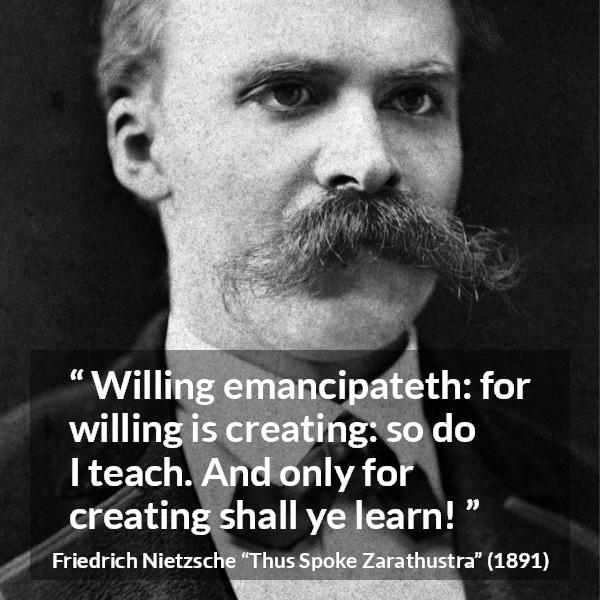
Since then, the version most commonly produced has included all four parts. In March 1892, the four parts were finally reprinted as a single volume. The fourth part remained private after Nietzsche wrote it in 1885 a scant forty copies were all that were printed, apart from seven others that were distributed to Nietzsche's close friends. The first three parts were first published separately, and were subsequently published in a single volume in 1887. Nietzsche commented in Ecce Homo that for the completion of each part, "en days sufficed in no case, neither for the first nor for the third and last, did I require more." Although Part Three was originally planned to be the end of the book, ending with a strong climax, Nietzsche subsequently decided to write an additional three parts ultimately, however, he composed only the fourth part, which is viewed to constitute an intermezzo.


Nietzsche planned to write the book in three parts over several years. As evidence of this, he made a small note that read "6,000 feet beyond man and time." More specifically, the concept of the eternal recurrence, which is the central idea of Zarathustra by Nietzsche's admission, first occurred to Nietzsche in Switzerland: he was inspired by the sight of a gigantic, towering, pyramidal rocka "pyramidal block of stone"while walking through the woods along the shores of Lake Silvaplana, in the Upper Engadine, a high alpine region whose valley floor is at 6,000 feet (1,800m).

Thus Spoke Zarathustra, the ideas of which first came to Nietzsche while walking on two roads surrounding Rapallo, was conceived while writing The Gay Science.

Nietzsche himself considered Zarathustra to be his magnum opus. Much of the work deals with ideas such as the "eternal recurrence of the same," the parable on the "death of God" and the "prophecy" of the bermensch, which were first introduced in The Gay Science. Thus Spoke Zarathustra: A Book for All and None (German: Also sprach Zarathustra: Ein Buch fr Alle und Keinen, also translated as Thus Spake Zarathustra) is a philosophical novel by German philosopher Friedrich Nietzsche, composed in four parts written and published between 18.


 0 kommentar(er)
0 kommentar(er)
